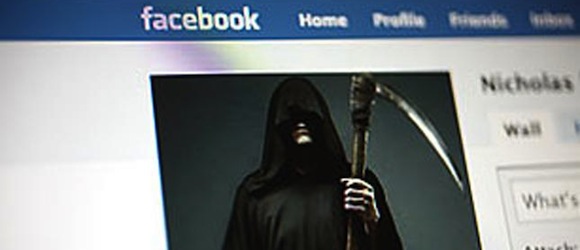The Internet is a young place, and much that came with it: digital piracy, electronic distribution, social networking, and online business are even younger. The most experienced users of these services are also pretty young. On top of that, the law also frequently takes a while to catch up to society. And so the companies that manage our social media, the content we upload, the updates we post, and the tweets we tweet; haven’t really had much pressure yet to deal with dead users. Here and there, as we’re about to mention, attempts have been made to adress the issue by individuals, but this does not appear to be a widespread concern.
It should stand to reason that even when we’re not sure if we own DRM protected content or merely a license to use it in the ways that its actual owners intend it to be used; and if we’ve gotten used to a social media system where the company who owns the website you post your day-to-day updates on owns or partially owns the information you upload; we really haven’t figured out who owns all that data after the poster dies. Some states, however, are trying to rectify that.
AP tells the story of Karen Williams, who, after her 22-year-old son died in a motorcycle accident, contacted Facebook to see what she could do with his profile in remembrance of him:
Williams found his password and emailed the company, asking administrators to maintain 22-year-old Loren Williams’ account so she could pore through his posts and comments by his friends. But within two hours, she said, Facebook changed the password, blocking her efforts.
“I wanted full and unobstructed access, and they balked at that,” said Williams, recalling her son’s death in 2005. “It was heartbreaking. I was a parent grasping at straws to get anything I could get.”
Williams was eventually granted 10 months in which to access her son’s account before it was deleted permanently, but only after a two year legal battle. Since then, Facebook has implemented a death policy, where a user death can be reported via an online form, and the user’s account is placed in a “memorial” status, where it displays less information can only be seen by friends. If a close relative asks that the account be removed, they will remove it, but will not give access to the account to another person and will turn over the account’s data only “if prior consent is obtained from or decreed by the deceased or mandated by law.”
Oklahoma and Nebraska, however, are at work crafting those lawful mandates. Both states’ bills would create the legal structure to consider Facebook, Twitter, and email accounts as a part of a person’s estate: the sum of their property at death. In a time when so much of our lives are kept on a password protected computer of some kind, death and the subsequent loss of those secret passwords can wipe out significant portions of a person’s life from their surviving relatives. Where once someone might have a physical address book that could be used to contact friends unknown to the person managing their estate, now that’s locked behind an email account or smartphone screen. Where once a rack of photo albums or a shoebox of prints might hold stuff that would be spread out among loved ones, now it’s behind a password protected social media account.
And we haven’t even gotten to online banking. Imagine trying to establish the assets of a person with no prepared will listing those assets, and who gets all their financial statements by email when you don’t have the password. One of the reasons I’m not unfamiliar with this issue is that I worked in a law office that specialized in estate planning and end-of-life decisions for a number of years, and the lawyers of the firm, while significantly older than I and the average social media adopter, were already concerned about the growing importance of virtual assets in their clients lives.
Facebook spokesman Tucker Bounds said the company was surprised by the Oklahoma law and was working closely with Nebraska legislators on the latest proposal. The company declined to say how many people had requested access to accounts held by Oklahomans, but Bounds said it was relatively rare.
“I can tell you there aren’t people pouring out into the streets asking for access,” Bounds said.
Oregon could be the next state to take up the issue. The Oregon State Bar Association has formed a group to work on the matter and hopes to propose legislation next year.
Ultimately, well, people should get their legal docs together. If you don’t want your parents combing through your Facebook if you suddenly die, legally appoint someone else to do it. In fact, having one Executor (the person who is legally charged, by your will, with the responsibility of distributing your assets as laid out in your will) for physical assets and one for digital ones seems like a reasonable solution to me, if you’re really paranoid about it.
(Brattleboro Reformer via Jezebel.)







